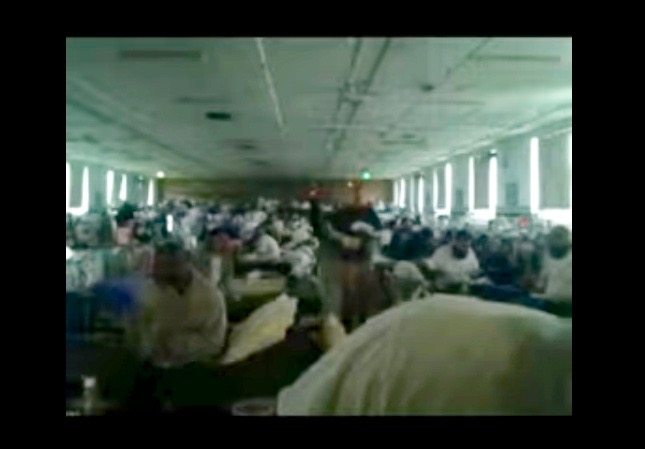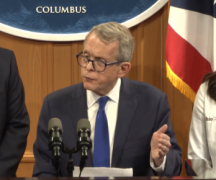The Ohio Supreme Court dismissed a lawsuit Thursday from an HIV-positive inmate seeking release from prison due to his increased vulnerability to severe complications from the novel coronavirus tearing through state prisons.
However, Justice Michael Donnelly said although dismissal is correct as a matter of law, the state needs to take drastic action to prevent “catastrophe” and save lives among the masses in Ohio prisons.
“The whole of Ohio’s government needs to take serious, unprecedented steps to prevent the catastrophe of unmitigated spread of COVID-19 to the tens of thousands of prisoners in Ohio as well as to the tens of thousands of people who are prison employees along with those living in the households of prison employees,” he said.
As of Wednesday, three prisoners and one corrections officerhave died from COVID-19, the respiratory disease caused by the novel coronavirus. It was first detected in Ohio prisons March 29.
Another 272 inmates and 159 workers are infected; 331 inmates are in isolation; 744 tests are pending; and 15 prisons housing more than 21,000 inmates are in full quarantines.
Experts say the virus is dangerous in prisons, which are overcrowded and often unhygienic. Video obtained from inside Marion Correctional Institution shows inmates crowded in open-dorm style bay areas, despite social-distancing mandates from state and federal governments.
Donnelly, in his concurring opinion, called on different institutions to take steps to save lives. He said trial courts can “liberally and expeditiously” grant requests for judicial release. The legislature can remove “arbitrary” statutory restrictions on judicial release that “fetter the judiciary’s” decision.
“It would take broad action to release an adequate number of prisoners to make a difference in the overall prison population and protect those who are medically fragile,” he said. “It would also require painstaking, individualized action to ensure that proper consideration is given to each inmate’s detention history, health status, and risk of recidivism, as well as to victims’ rights and general concerns for public safety and welfare, before releases or furloughs can occur.”
There are about 49,000 inmates in Ohio’s state prisons. The governor announced Wednesday that 105 have met a narrow criteria for early release given the pandemic, and credited state judges with reducing the prison population by more than 300.
Lichtenwalter filed his lawsuit in March. He was sentenced to 30 months in prison for leading police on a lengthy chase, though he argued the pandemic turned the stretch into a death sentence.
The risk of serious illness from COVID-19 among HIV positive people is not currently known, according to the CDC. However, people who are immunocompromised face higher risks for serious illness.
However, Lichtenwalter said the risks are dire.
“(It) is a higher rate than if I played Russian roulette,” Lichtenwalter said.
“Please understand that there is no way that once the coronavirus, COVID-19 gets to prison, it will be able to be contained, and once it spreads, many will die who need not, and who otherwise would be home within a few months to a few years.”
The ACLU of Ohio filed a friend of the court brief on Lichtenwalter’s behalf.
Elizabeth Bonham, an ACLU attorney, said the ruling is disappointing. However, she said she’s heartened to see Donnelly’s call to action.
The ACLU of Ohio has been pressuring Gov. Mike DeWine to release thousands of inmates to slow the spread of the virus.
“There’s a stark contrast here between what the government is doing to protect free people and not doing to protect incarcerated people,” she said.
A DeWine spokesman could not immediately be reached.





